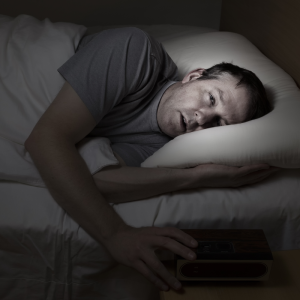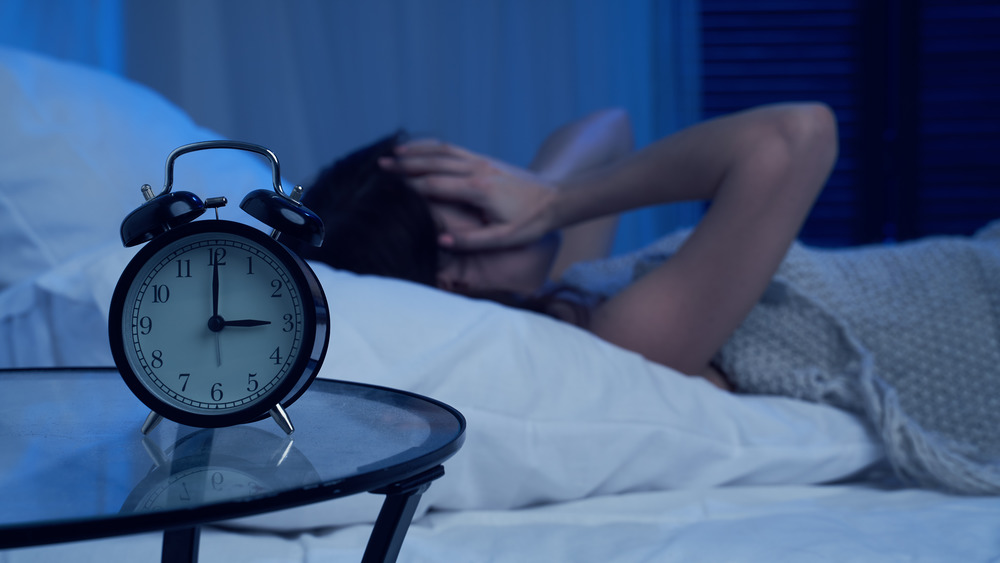🌙 Why You Wake Up at 3 A.M. (And How to Fix It)
It’s 3:00 a.m. Your room is dark and quiet, but your eyes pop open. You’re wide awake — again. If this scenario feels frustratingly familiar, you’re not alone.  Many people wake up at the same early-morning hour and find it difficult to get back to sleep.
Many people wake up at the same early-morning hour and find it difficult to get back to sleep.
But what causes this consistent wake-up pattern? And more importantly — how can you fix it?
Let’s explore the common reasons why you wake up at 3 a.m. and practical, science-backed solutions to help you rest through the night.
—
🕒 Common Reasons You Wake Up at 3 A.M.
1. Stress and Cortisol Spikes
Your body operates on a circadian rhythm. Around 3 a.m., cortisol levels — the “alertness hormone” — begin to rise naturally to prepare your body for the coming day. If you’re under stress, your cortisol may spike too early or too sharply, waking you up.
2. Blood Sugar Imbalances
When blood sugar drops too low during the night, your body triggers a release of stress hormones (like cortisol and adrenaline) to restore balance — and that can jolt you awake.
3. Sleep Apnea or Breathing Disturbances
Waking up suddenly could also be a sign of sleep apnea or shallow breathing. If you snore loudly or feel tired despite “sleeping” all night, it’s worth getting evaluated.
4. Overactive Mind or Anxiety
Many people report waking up with racing thoughts, to-do lists, or anxiety. Even if you fell asleep easily, mental tension can manifest during your lightest sleep stages — often around 3 a.m.
5. Environmental Factors
Noises outside, snoring partners, room temperature fluctuations, or blue light exposure before bed can disrupt deep sleep and make you more prone to waking.
—
💡 How to Stop Waking Up at 3 A.M.
🧘 1. Practice Stress-Reduction Before Bed
– Try journaling, meditation, or the 4-7-8 breathing method before sleep.
– Avoid stimulating content or conversations late in the evening.
– Establish a consistent bedtime routine to train your body for deeper rest.
🥜 2. Eat a Blood Sugar-Stabilizing Snack
A small snack before bed (like a banana with almond butter or a few walnuts) can prevent overnight drops in glucose.
Avoid: Alcohol, refined carbs, and sugar-laden snacks — these spike and crash blood sugar levels.
🌬️ 3. Assess Your Breathing and Sleep Quality
– If you’re waking up gasping or snoring loudly, consult your doctor about sleep apnea.
– Consider using a sleep tracker or app to monitor your overnight oxygen levels and rest cycles.
💤 4. Manage Your Sleep Environment
– Set your bedroom temperature between 60–67°F (15–19°C).
– Use blackout curtains and white noise if needed.
– Turn off screens at least 60 minutes before bed to avoid blue light disruption.
🛏️ 5. Don’t Stay in Bed Awake
If you wake up at 3 a.m. and can’t fall back asleep within 15–20 minutes:
– Get out of bed and do something calm (like reading under dim light).
– Avoid looking at your phone or clock — it increases anxiety and alertness.
—
📝 Final Thoughts
Waking up at 3 a.m. may feel mysterious, but it often has a biological or lifestyle cause. Whether it’s stress, blood sugar, or disrupted circadian rhythms — the solutions are within your reach.
✅ Start with a few changes tonight: reduce stress before bed, adjust your environment, and stabilize your blood sugar. You might just sleep through the night — and wake up feeling refreshed.
Need help building a full sleep routine?
📘 [Download our free 7-Day Sleep Reset Plan] and discover what deep, uninterrupted sleep really feels like.
Sleep better. Live better. It starts tonight.



